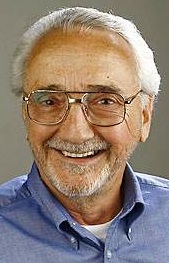 |
CHRIS CARLSON Carlson Chronicles |
One might call it the equivalent of the quarterback sneak play, only in this case the quarterback, Ed Lodge, an All American at the position for Boise Junior College, and then a “Little†All American at the College of Idaho, knew nothing about the play.
Edward J. Lodge, who announced this past week he is moving to “senior status†on the 9th Federal District Bench as Idaho’s chief federal judge, is basking in an outporing of well deserved praise. He has presided over virtually every major, complicated Federal case in Idaho over the past 25 years: Two examples are the Ruby Ridge trial in which a jury, expertly guided by the fair and impartial Lodge, acquitted Randy Weaver; and, the murder trial of Claude Dallas, the self-styled survivalist and trapper who coldly killed two Idaho Fish and Game agents, Bill Pogue and Conley Elms, in the Owyhee Desert southwest of Boise.
Non-murder cases that Lodge has presided over include the EPA managed Superfund settlement in Idaho’s Silver Valley and his over sight of the Nuclear Waste disposal agreement between the state and the U.S. Department of Energy.
President George H.W. Bush, sent Lodge’s name to the Senate Judiciary committee in 1989 at the behest of senior Republican Senator James A. McClure and a virtuallly united Idaho Congressional delegation that included Senator Steve Symms, Congressman Larry Craig from the First District, and the delegation’s lone Democrat, Second District Congressman Richard Stallings.
Even more remarkable for a nomination to the life-time position of a state’s federal district judge, Senator McClure carried in his pocket and read into the record a letter of unqualified endorsement by Idaho’s Democratic governor, Cecil D. Andrus. This bi-partisan support for a Federal judgship is almost unheard of in today’s bitterly partisan environment. Lodge received unanimous confirmation.
Ed Lodge, however, warranted this support. He already had established in Idaho a reputation for probity, common sense, intelligence and an excellent grasp of the law and how it relates to justice. (more…)




